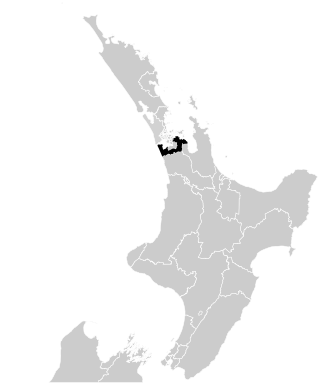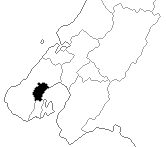
The 1999 New Zealand general election was held on 27 November 1999 to determine the composition of the 46th New Zealand Parliament. The governing National Party, led by Prime Minister Jenny Shipley, was defeated, being replaced by a coalition of Helen Clark's Labour Party and the smaller Alliance. This marked an end to nine years of the Fourth National Government, and the beginning of the Fifth Labour Government which would govern for nine years in turn, until its loss to the National Party in the 2008 general election. It was the first New Zealand election where both major parties had female leaders.

The 1938 New Zealand general election was a nationwide vote to determine the shape of the New Zealand Parliament's 26th term. It resulted in the governing Labour Party being re-elected in a landslide, winning nearly 56% of the vote despite not gaining any more seats. Having replaced the United-Reform coalition, the newly founded National Party also gained a certain amount of ground.

The 2008 New Zealand general election was held on 8 November 2008 to determine the composition of the 49th New Zealand Parliament. The liberal-conservative National Party, headed by its parliamentary leader John Key, won the largest share of votes and seats, ending nine years of government by the social-democratic Labour Party, led by Helen Clark. Key announced a week later that he would lead a National minority government with confidence-and-supply support from the ACT, United Future and Māori parties. The Governor-General swore Key in as New Zealand's 38th Prime Minister on 19 November 2008. This marked the beginning of the Fifth National Government which governed for the next nine years, until the 2017 general election, when a government was formed between the Labour and New Zealand First parties, with support on confidence and supply by the Green Party.

Hamilton East is a New Zealand parliamentary electorate.

Nelson is a New Zealand parliamentary electorate, returning one Member of Parliament to the House of Representatives of New Zealand. From 1853 to 1860, the electorate was called Town of Nelson. From 1860 to 1881, it was City of Nelson. The electorate is the only one that has continuously existed since the 1st Parliament in 1853.
Port Waikato is a New Zealand parliamentary electorate which existed for four parliamentary terms from 1996 to 2008, and was recreated by the 2019/20 electoral redistribution ahead of the 2020 election. It was held by Bill Birch for one term, and by Paul Hutchison for the following three terms. From 2020, it was held by Andrew Bayly. All of these were members of the National Party.

Rotorua is a New Zealand parliamentary electorate, returning one Member of Parliament to the New Zealand House of Representatives. It was first established in 1919, and has existed continuously since 1954. The current MP for Rotorua is Todd McClay of the National Party, who won the electorate in the 2008 general election from incumbent Labour MP Steve Chadwick.

Wellington Central is an electorate, represented by a Member of Parliament in the New Zealand House of Representatives. The current MP for Wellington Central is Tamatha Paul of the Green Party. She has held this position since the 2023 general election.

Te Tai Hauāuru is a New Zealand parliamentary Māori electorate, returning one Member of Parliament to the New Zealand House of Representatives, that was first formed for the 1996 election. The electorate was represented by Tariana Turia from 2002 to 2014, first for the Labour Party and then for the Māori Party. Turia retired and was succeeded in 2014 by Labour's Adrian Rurawhe who retained the seat in 2017 and again in 2020.

The Hunua electorate existed three times for the New Zealand House of Representatives beginning in 1978, based at the south end of the Auckland urban area, and named for the Hunua Ranges. It covered different geographical areas over those periods. The electorate was last represented by Andrew Bayly of the National Party before its dissolution in 2020.

Hauraki-Waikato is a New Zealand parliamentary Māori electorate first established for the 2008 election. It largely replaced the Tainui electorate. Nanaia Mahuta of the Labour Party, formerly the MP for Tainui, became MP for Hauraki-Waikato in the 2008 general election and was re-elected in 2011, 2014, 2017 and 2020.
Opinion polling has been commissioned throughout the duration of the 49th New Zealand Parliament and in the leadup to the 2011 election by various organisations. The main four are Television New Zealand, TV3, The New Zealand Herald and Roy Morgan Research. The sample size, margin of error and confidence interval of each poll varies by organisation and date.
Opinion polling was commissioned throughout the duration of the 47th New Zealand Parliament and in the lead up to the 2005 election by various organisations.

The 1992 Wellington Central by-election was a by-election held in the Wellington Central electorate during the 43rd New Zealand Parliament, on 12 December 1992. It was caused by the resignation of incumbent MP Fran Wilde after her election as mayor of Wellington and was won by Chris Laidlaw with a majority of 855.
Various organisations commissioned opinion polls for the 2017 New Zealand general election during the term of the 51st New Zealand Parliament (2014–2017). Roy Morgan Research polled monthly, with MediaWorks New Zealand and Television New Zealand polling less frequently. The last The New Zealand Herald was in December 2015, and Fairfax Media discontinued their poll after the 2014 election. The sample size, margin of error and confidence interval of each poll varied by organisation and date, but were typically 800–1000 participants with a margin of error of just over 3%.
Several polling firms conducted opinion polls during the term of the 52nd New Zealand Parliament in the lead up to the 2020 general election, which elects the 53rd Parliament. The 52nd Parliament was elected on 23 September 2017 and dissolved on 6 September 2020. The 2020 election was originally due to take place on Saturday 19 September 2020, but due to a second COVID-19 outbreak it was delayed until Saturday 17 October 2020.
This is a summary of the electoral history of Helen Clark, Prime Minister of New Zealand (1999–2008), Leader of the Labour Party (1993–2008) and Member of Parliament for Mount Albert (1981–2008).
Several polling firms conducted opinion polls during the term of the 53rd New Zealand Parliament (2020–2023) for the 2023 New Zealand general election. The regular polls are the quarterly polls produced by Television New Zealand conducted by Verian and Discovery New Zealand (Newshub) conducted by Reid Research, along with monthly polls by Roy Morgan, and by Curia. The sample size, margin of error and confidence interval of each poll varies by organisation and date.
Opinion polling was commissioned throughout the duration of the 45th New Zealand Parliament in the lead up to the 1999 election by various organisations.
Several polling firms have conducted opinion polls during the term of the 54th New Zealand Parliament (2023–present) for the next New Zealand general election. The regular polls are the quarterly polls produced by Television New Zealand conducted by Verian and Discovery New Zealand (Newshub) conducted by Reid Research, along with monthly polls by Roy Morgan, and by Curia. The sample size, margin of error and confidence interval of each poll varies by organisation and date.












